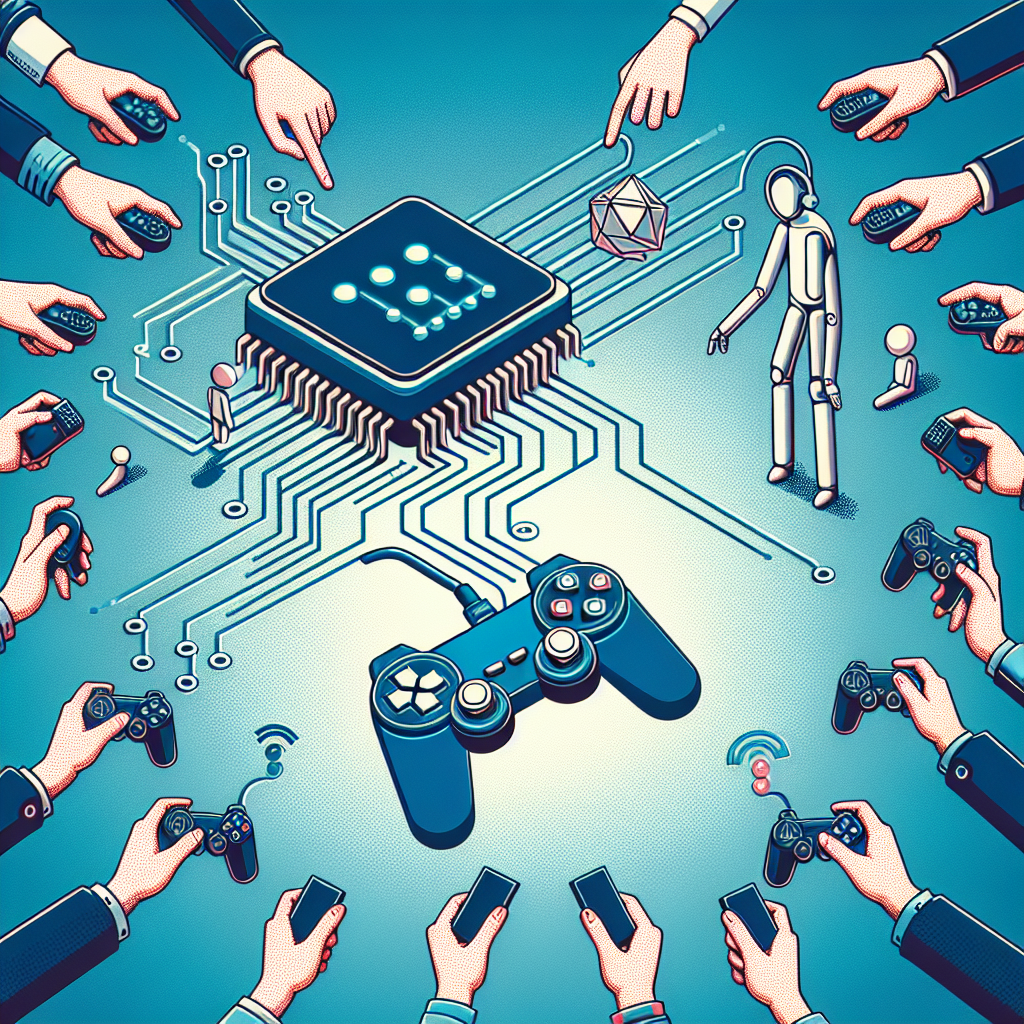Artificial Intelligence (AI) has been transforming various industries by enhancing efficiency, productivity, and user experience. In the gaming industry, AI is playing a crucial role in improving game accessibility for all players, including those with disabilities. Through the use of advanced algorithms and machine learning capabilities, AI is revolutionizing the way games are designed, developed, and played.
One of the most significant ways AI is enhancing game accessibility is through the implementation of adaptive technologies. These technologies can automatically adjust game settings, controls, and difficulty levels based on the player’s unique needs and preferences. For example, AI can analyze a player’s behavior and performance in real-time and make adjustments to the game mechanics to provide a more inclusive and enjoyable gaming experience.
Additionally, AI-powered tools and features can help players with disabilities by providing alternative control options, such as voice commands, eye-tracking, or gesture recognition. These technologies allow players to interact with games in ways that are more accessible and comfortable for them, regardless of their physical limitations.
Furthermore, AI is being used to create more inclusive and diverse characters and storylines in games. By analyzing player data and feedback, AI can help game developers create characters that represent a wider range of abilities, genders, races, and backgrounds. This not only enhances the overall gaming experience but also promotes inclusivity and diversity within the gaming community.
Moreover, AI is being utilized to improve the overall game design process, making it more accessible for developers with disabilities. For example, AI-powered tools can help automate certain aspects of game development, such as coding, testing, and debugging, making it easier for developers to create games that are accessible to all players.
In summary, AI is revolutionizing game accessibility by providing adaptive technologies, alternative control options, inclusive character representation, and improved game design processes. Through the use of AI, developers can create games that are more inclusive, diverse, and accessible for all players, regardless of their abilities or disabilities.
FAQs:
Q: How is AI being used to improve game accessibility for players with disabilities?
A: AI is being used to create adaptive technologies that can automatically adjust game settings, controls, and difficulty levels based on the player’s unique needs and preferences. Additionally, AI-powered tools provide alternative control options, such as voice commands, eye-tracking, or gesture recognition, to help players with disabilities interact with games more comfortably.
Q: How does AI help create more inclusive and diverse characters in games?
A: AI analyzes player data and feedback to help game developers create characters that represent a wider range of abilities, genders, races, and backgrounds. By using AI, developers can ensure that their games are more inclusive and diverse, promoting inclusivity within the gaming community.
Q: How can AI improve the overall game design process for developers with disabilities?
A: AI-powered tools can help automate certain aspects of game development, such as coding, testing, and debugging, making it easier for developers with disabilities to create games that are accessible to all players. By using AI, developers can streamline the game design process and create more inclusive and accessible games.
In conclusion, AI is playing a crucial role in enhancing game accessibility for players with disabilities. By providing adaptive technologies, alternative control options, inclusive character representation, and improved game design processes, AI is revolutionizing the way games are designed, developed, and played. Through the use of AI, developers can create games that are more inclusive, diverse, and accessible for all players, promoting inclusivity and diversity within the gaming community.

